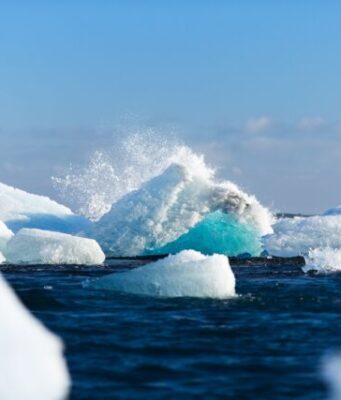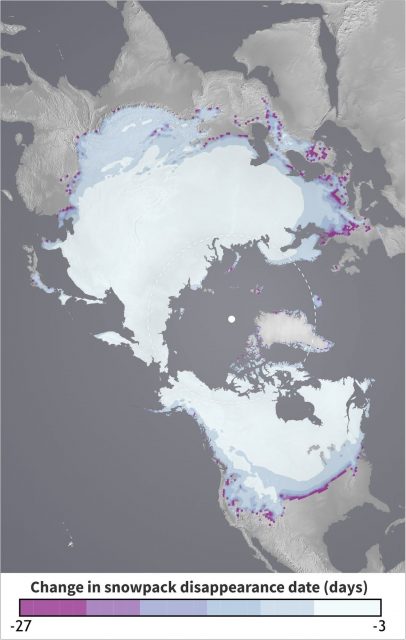Limiting global warming to targets proposed in the Paris Agreement could keep tropical regions from reaching temperatures that are beyond human tolerability, a new study projects.
Researchers estimate that if countries are able to cap warming at 1.5 degrees Celsius...
The amount of snow falling on Greenland's glaciers may have been less than the water lost through icebergs calving and melting since at least the mid-1980s, a study of almost 40 years of satellite images has revealed.
The study was...
Volcanic eruptions, not natural variability, were the cause of an apparent "Atlantic Multidecadal Oscillation," a purported cycle of warming thought to have occurred on a timescale of 40 to 60 years during the pre-industrial era, according to a team...
As the planet warms, scientists expect that mountain snowpack should melt progressively earlier in the year. However, observations in the U.S. show that as temperatures have risen, snowpack melt is relatively unaffected in some regions while others can experience...
A world without sharks is a world less resilient to extreme climate events, scientists say.
Predators, including some sharks, are known to be critical for maintaining stability and biodiversity in the world's oceans. But according to a new study, they...
Freshwater is accumulating in the Arctic Ocean. The Beaufort Sea, which is the largest Arctic Ocean freshwater reservoir, has increased its freshwater content by 40% over the past two decades. How and where this water will flow into the...
Younger, smaller trees that comprise much of North America's eastern forests have increased their seed production under climate change, but older, larger trees that dominate forests in much of the West have been less responsive, a new Duke University-led...
During glacial periods, the sea level falls, because vast quantities of water are stored in the massive inland glaciers. To date, however, computer models have been unable to reconcile sea-level height with the thickness of the glaciers. Using innovative...
Imagine abrupt shifts of the tropical monsoons, reductions in Northern Hemisphere rainfall, and strengthening of North Atlantic storm tracks within decades. These are some of the impacts that climate scientists expect if the Atlantic Meridional Overturning Circulation (AMOC), which...
A new study published in Nature Communications suggests that the extinction of North America's largest mammals was not driven by overhunting by rapidly expanding human populations following their entrance into the Americas. Instead, the findings, based on a new statistical modelling...
A new paper refines estimates of when herbivorous dinosaurs must have traversed North America on a northerly trek to reach Greenland, and points out an intriguing climatic phenomenon that may have helped them along the journey.
The study, published today...


















